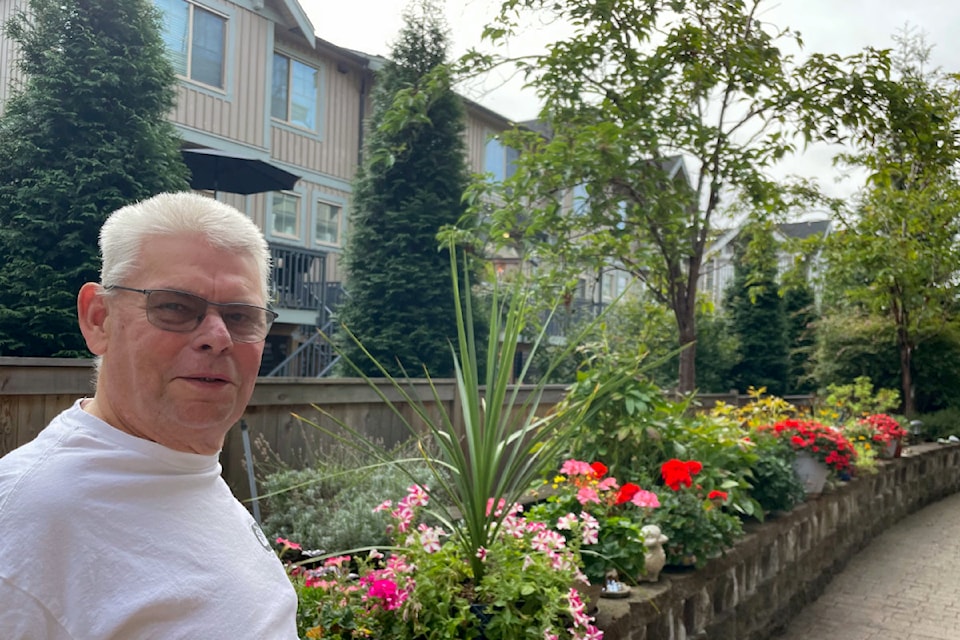Lifestyle
Retirement Community Sparks New Life for Thomas Kaest

Many individuals face uncertainty in their later years, but for Thomas Kaest, moving to a retirement community marked a significant turning point. After years of feeling isolated, Kaest discovered a renewed sense of purpose and friendship that reshaped his life. This transformation highlights the potential benefits of community living for seniors, emphasizing social connections and emotional well-being.
The decision to relocate to a retirement community was not an easy one for Kaest, who initially grappled with feelings of doubt. At 75 years old, he was hesitant about leaving the familiarity of his long-time home. Yet, after witnessing the vibrant atmosphere of the community and its array of activities, he took the leap.
Finding Community and Connection
Upon settling in, Kaest quickly engaged with his new environment. He participated in various social events, from game nights to exercise classes, which allowed him to forge meaningful relationships. The sense of camaraderie among residents provided a stark contrast to the loneliness he had previously experienced.
Kaest’s story reflects a growing trend among seniors opting for retirement communities. According to a study by the National Institute on Aging, nearly 80% of seniors report improved emotional well-being after moving to such communities. This data underscores the importance of social interaction in enhancing quality of life during later years.
Kaest found that the structured environment of the retirement community also offered opportunities for personal growth. He joined a book club, which not only stimulated his mind but also led to discussions that deepened his friendships. The communal activities fostered a sense of belonging and purpose that he had been missing for years.
The Power of Purpose
As Kaest became more involved, he began volunteering for community events. This newfound purpose transformed his daily routine and enriched his life. He noted that contributing to the community not only benefited others but also boosted his own self-esteem and happiness.
“Being part of something larger than myself has made all the difference,” Kaest shared. “I feel like I am contributing to the lives of others, and that gives my life meaning.”
The emotional and social benefits of community living are well-documented. Research from Harvard Medical School indicates that seniors with strong social networks are less likely to experience depression and cognitive decline. Kaest’s experience aligns with these findings, demonstrating how retirement communities can serve as catalysts for personal growth and fulfillment.
As more seniors seek out environments that prioritize connection and engagement, the appeal of retirement communities continues to rise. Kaest’s story is just one of many that illustrate how these spaces can transform lives, providing opportunities for friendship, purpose, and a vibrant lifestyle.
In conclusion, Thomas Kaest’s journey from doubt to discovery is a testament to the positive impact of retirement community living. His experience underscores the importance of social connections in fostering well-being during later years. As communities evolve to meet the needs of their residents, the potential for personal and communal growth remains significant.
-

 Science2 months ago
Science2 months agoToyoake City Proposes Daily Two-Hour Smartphone Use Limit
-

 Health2 months ago
Health2 months agoB.C. Review Reveals Urgent Need for Rare-Disease Drug Reforms
-

 Top Stories2 months ago
Top Stories2 months agoPedestrian Fatally Injured in Esquimalt Collision on August 14
-

 Technology2 months ago
Technology2 months agoDark Adventure Game “Bye Sweet Carole” Set for October Release
-

 World2 months ago
World2 months agoJimmy Lai’s Defense Challenges Charges Under National Security Law
-

 Technology2 months ago
Technology2 months agoKonami Revives Iconic Metal Gear Solid Delta Ahead of Release
-

 Technology2 months ago
Technology2 months agoSnapmaker U1 Color 3D Printer Redefines Speed and Sustainability
-

 Technology2 months ago
Technology2 months agoAION Folding Knife: Redefining EDC Design with Premium Materials
-

 Technology2 months ago
Technology2 months agoSolve Today’s Wordle Challenge: Hints and Answer for August 19
-

 Business2 months ago
Business2 months agoGordon Murray Automotive Unveils S1 LM and Le Mans GTR at Monterey
-

 Lifestyle2 months ago
Lifestyle2 months agoVictoria’s Pop-Up Shop Shines Light on B.C.’s Wolf Cull
-

 Technology2 months ago
Technology2 months agoApple Expands Self-Service Repair Program to Canada









